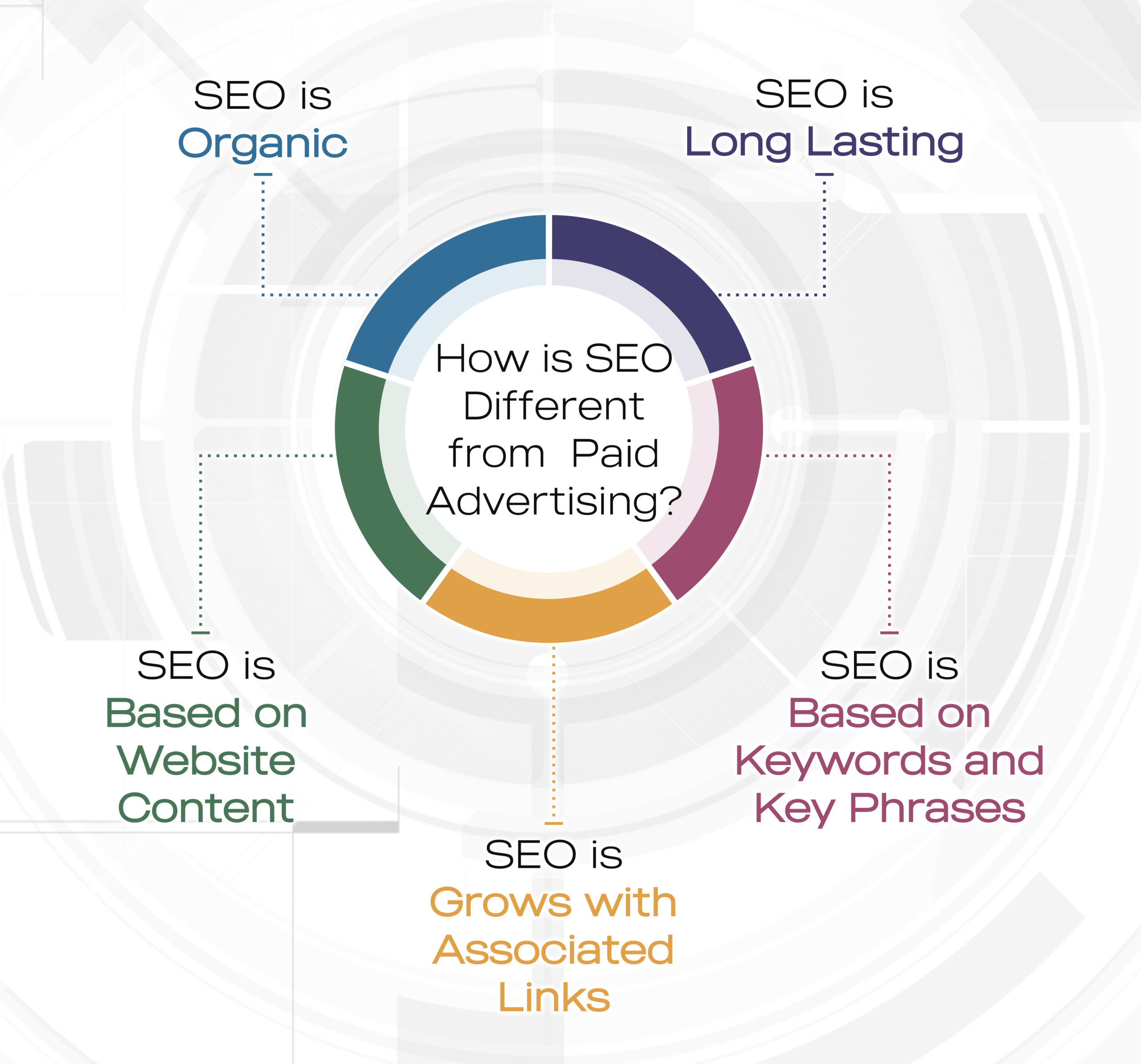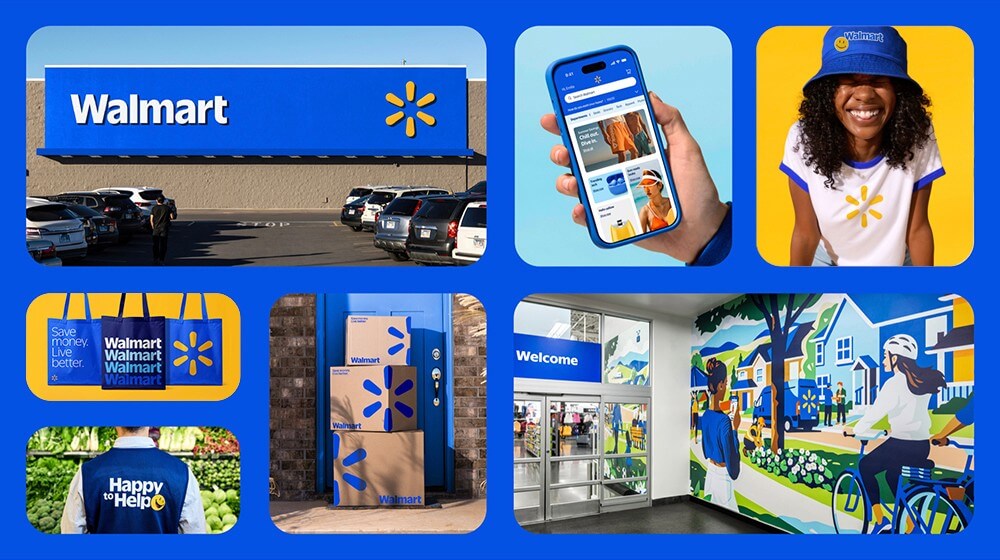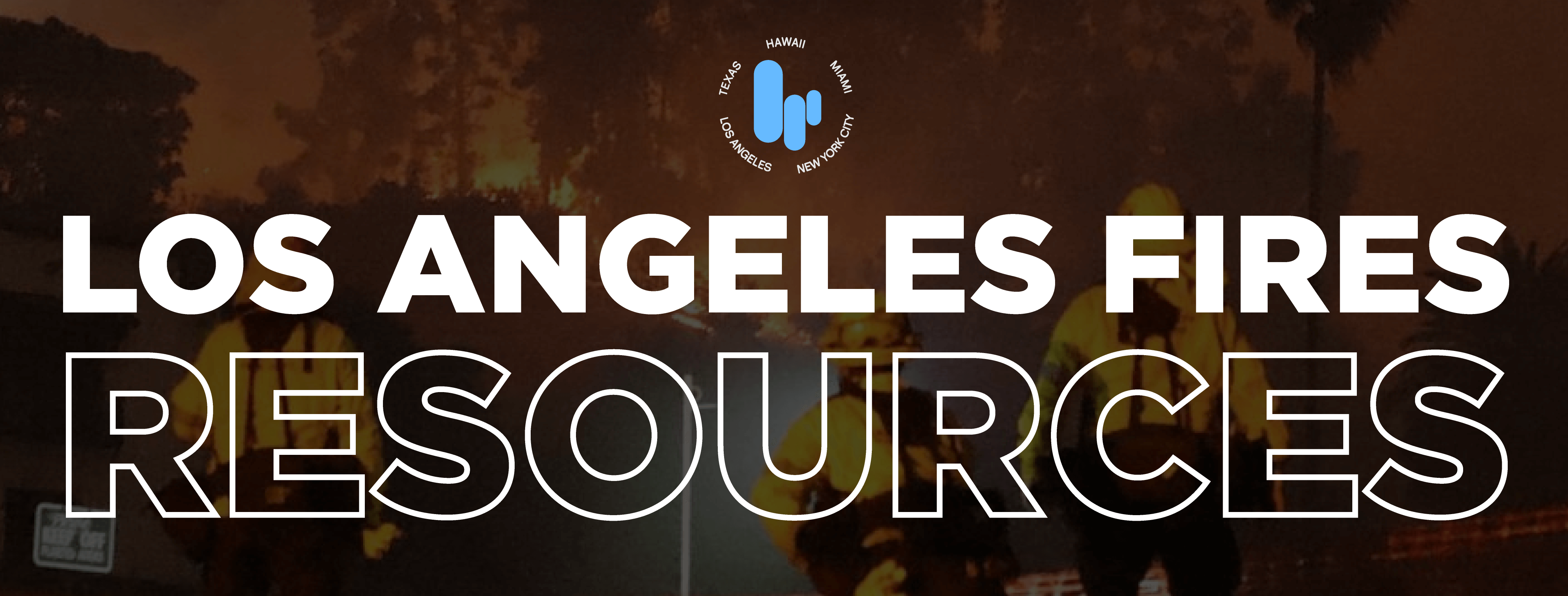When you’re learning the nut and bolts of digital marketing, website optimization, and how to grow your online presence, you’ll often see the phrases “SEO” and “paid advertising” get tossed around. They both carry a lot of weight and can be used for driving online traffic, but there’s several distinct differences between the two.
SEO (or search engine optimization) is a process that helps your website rank higher in search engine results, like on Google, with the ultimate goal of increasing traffic to your website. Paid advertising can take many forms, but can be found most frequently on social media, banner ads on websites, or in search engines, and these placements are paid for by the advertiser to appear on their desired platform.
Both SEO and paid advertising have their place in digital marketing strategies, but seeing the highest success rate is down to striking a fine balance between them. There’s several components to consider, but understanding exactly how SEO is different from paid advertising is the best place to start.
SEO IS ORGANIC
When using any search engine, you’ll often notice “sponsored” results at the top. These are paid advertisements that don’t need to have SEO implemented because advertisers have paid to appear on the page (also known as inorganic marketing). Alternatively, SEO is organic, meaning you can enhance your site’s engagement with a lower cost involved.
When implementing SEO into your website by using proven techniques like incorporating keywords, tags, meta descriptions, optimized imagery, and backlinks, you’re following a very particular algorithm to showcase the relevance of your content. Because Google is regularly enhancing user experience, relevant search results are prioritized, which is why SEO is key to organically growing engagement.

SEO IS LONG LASTING
Generally speaking, if you’re looking for a quick, short-term solution to generate traffic and drive conversion, opting for paid advertising is the way to go. However, if you’re willing to invest more time and effort for a longer-term pay off, then SEO will be a valuable tool.
SEO can take time to garner results and will need dedicated, regular effort to maintain. Because Google changes its algorithm regularly, and users change the way they search over time, it can be difficult to keep up. And, once you’ve implemented strong SEO into your site, you’ll need to perform regular maintenance and updates to keep your high ranking within search engine results — remember, your competitors will be using SEO as well.
Despite this long process, SEO remains popular because it holds long lasting results. SEO is considered a long-term investment because the hard work you put into optimizing your content will yield more of an audience overtime, and it will keep that stream of visitors coming for longer.
SEO IS BASED ON WEBSITE CONTENT
Another key area in which SEO is different from paid advertising is website content. For SEO, because the Google algorithm scans the text of a website, the content needs to be relevant and properly optimized to rank highly in search engine results. In contrast, paid advertisements rank well based on the cost associated, and not on the content of the ad.
Your website will rank highly if you regularly post useful and appropriate content that speaks to the audience you’re trying to attract. These can include blogs, articles, case studies, interviews, videos, and imagery — but using a varied approach is a SEO best practice that can increase your audience as well. If this isn’t your strong suit, using paid advertisements is still an option but it’s also important to think about what your audience will see once they get to your page. Building up strong pieces of content and ensuring that it’s user-friendly can give your website (and brand by association) more authority and hold your audience’s attention for longer.

SEO GROWS WITH ASSOCIATED LINKS
SEO has a lot of techniques to it, and the use of associated links is an important one. It’s widely understood that the algorithm Google uses can be a little finicky, and in the past, Google used to rank websites highly based on how many links were included throughout the site’s content. This practice has been dropped since, because clearly, more isn’t always better.
Using associated links will still help your SEO grow, although the quality of these links is determined more important than the exact number you should include (which is still debated). This is because associated links provide authority and relevance, which are some of the main demanding factors of SEO. Strategically incorporating these links where relevant is essential, and finding the happy medium between quality and quantity can take some trial and error.
SEO IS BASED ON KEYWORDS AND KEY PHRASES
One of the most well-known techniques in SEO is the use of keywords and key phrases. Again, paid advertising doesn’t rely on this as strongly because inorganic marketing uses different factors to assess their rankings. When using SEO, researching and strategically placing high-performing keywords within your content is paramount. By learning which phrases or words are used most often by search engine users, you can predict which ones will make your website stand out as relevant to Google’s algorithm.
For example, if your company sells beauty products, inputting the key phrases “best lipstick of 2023” or “daily skin routine” within your content’s title, subheading, meta description, and a few times throughout the content itself, will enhance your SEO. While it may be tempting, you’ll want to avoid overuse of these keywords and phrases because your content should still be appealing enough for your target audience to read it. Overusing these words can come across as robotic and turn readers away. Like other SEO techniques, this is one that can be perfected with time.
NEED SOME HELP?
Website SEO takes time to perfect, and even with practice, standards are constantly evolving. We’re here to make it easy! With years of experience in website development, digital marketing, and SEO, our team at Branding Los Angeles can help your brand reach its goals. Contact us today!











